News in Brief
-
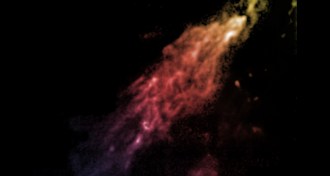 Astronomy
AstronomyGiant hydrogen cloud headed for Milky Way
A high-speed hydrogen cloud on a crash course with the Milky Way appears to be an exotic interloper, preliminary data suggest.
-
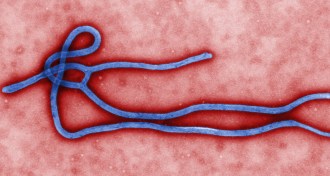 Genetics
GeneticsEbola virus evolution tracked by genetic data
Analysis of Ebola genomes shows how the virus has evolved and some of the mutations that may thwart treatments.
-
 Health & Medicine
Health & MedicineE-cigarettes may be gateway to addiction for teens
Teenagers are using e-cigarettes more than any other tobacco product and for many, it’s the first time they’ve tried a tobacco product at all.
-
 Quantum Physics
Quantum PhysicsQuantum guessing game uses the future to predict the past
Physicists extrapolate forward and backward in time to make accurate predictions about an object’s quantum state at a particular moment.
By Andrew Grant -
 Health & Medicine
Health & MedicineStoplights are hot spots for airborne pollution
Drivers get a big chunk of their exposure to pollutants from short stops at traffic intersections.
-
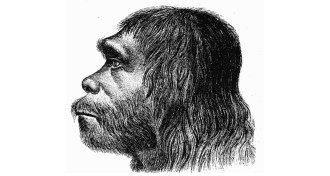 Genetics
GeneticsAncient East Asians mixed and mingled multiple times with Neandertals
East Asians’ ancestors interbred with Neandertals more than once, explaining why modern East Asians carry more Neandertal DNA than Europeans do, two studies suggest.
-
 Health & Medicine
Health & MedicineGlowing amino acid lights up growing brain cancer
By adding a tracer compound that sticks to the amino acid glutamine, researchers may be able to discern and monitor cancerous tissues in the brain.
By Nathan Seppa -
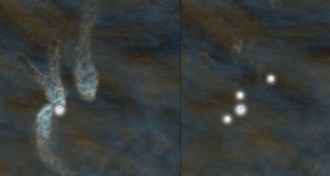 Astronomy
AstronomyStellar nursery gives birth to quadruplets
Four young stars, still in their cocoons, show that binary and other multiple star systems form together.
-
 Physics
PhysicsHow a violin’s f-holes influence its sound
F-shaped holes move air faster, allowing classic violins to put out more powerful sounds at lower frequencies than their ancestors, a new study shows.
-
 Health & Medicine
Health & MedicineBouncing back from giving blood can take months
Taking iron supplements after donating blood can dramatically reduce the time it takes to recover iron levels in the blood, a study finds.
By Nathan Seppa -
 Health & Medicine
Health & MedicineSigns of sleep debt found in the blood
When rats and people skimp on sleep, fats and acids involved in metabolism dwindle.
-
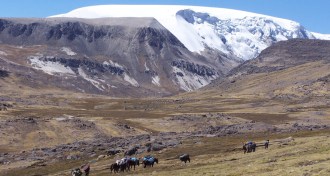 Environment
EnvironmentHumans’ environmental rap sheet gets longer
Ice cores reveal human-caused air pollution 240 years before the Industrial Revolution.
By Beth Mole